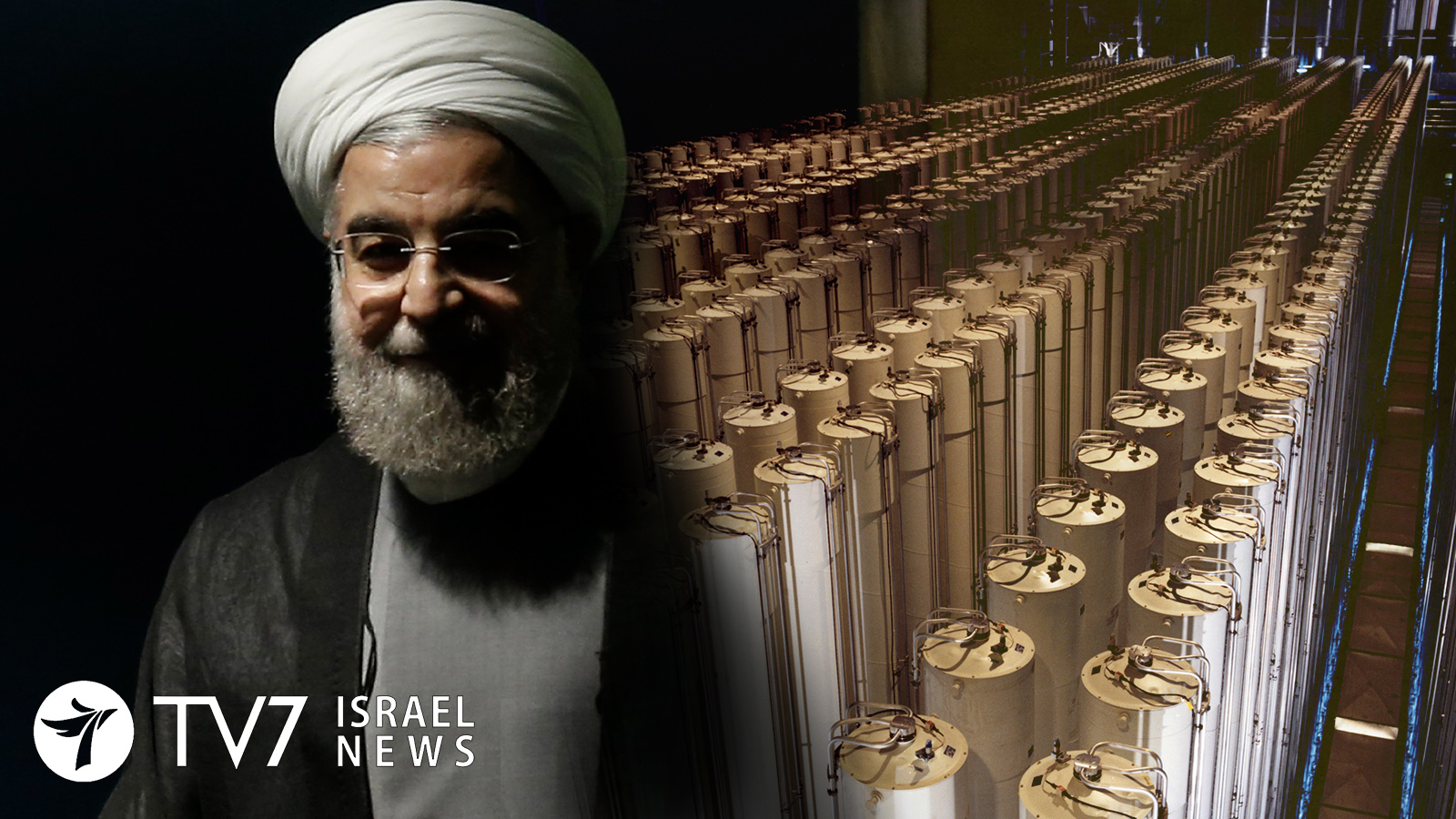Prime Minister Benjamin Netanyahu made an unscheduled trip to the United Kingdom this morning after Iran announced its decision to further scale back on its nuclear-related commitments under the 2015 Joint Comprehensive Plan of Action (JCPOA).
Ahead of boarding his flight to London, the Israeli leader told reporters gathered on the tarmac of Tel Aviv’s Ben Gurion International Airport that the latest “provocation by Iran” is “in the realm of its quest for nuclear weaponry.” Netanyahu said the violation “comes in addition to Iran’s aggressive actions against international sailing, against countries in the region,” while stressing the Islamic Republic’s relentless attempted-“deadly attacks against the state of Israel” are ongoing. After insisting that “this is not the time to hold talks with Iran” but rather “to increase the pressure,” the Israeli leader said he intends to discuss these and other topics with British Prime Minister Boris Johnson and U.S. Defense Secretary Mark Esper. He concluded his preflight remarks by saying, “ These are important things for Israel anytime, but especially now.”
Netanyahu’s sudden trip came in the wake of declaration from Iranian President Hassan Rouhani of Tehran’s intention to take additional steps away from the JCPOA tomorrow if Europe fails to provide a solution for the Islamic Republic’s faltering economy, which has effectively been crippled by U.S.-imposed international sanctions. At a press conference alongside Parliament Speaker Ali Larijani and Head of the Judiciary Ebrahim Rai’si, President Rouhani stated the scale back will be implemented on Friday, September 6th, ‘because Iran did not achieve its desirable objective.’ “I announce the third step now,” Rouhani said, adding “our atomic energy organization is obliged to immediately start doing whatever technically required in the country in terms of research and development, and to abandon all commitments in terms of research and development under the JCPOA.”
The Iranian leader went on to further underscore that in the so-called ‘third step’, “We will witness development in research and development in the field of centrifuges, various types of new centrifuges, and whatever we need for enrichment, which will be handled by our atomic energy organization, and we will observe promptitude in this regard.”
It is important to mention that Prime Minister Netanyahu’s stance this morning on the Iranian nuclear issue marked a rare public dissonance with his close-friend and ally, U.S. President Donald Trump. In comments to the press at the Oval Office in the White House yesterday, the American leader left the door open to a possible meeting with his Iranian counterpart Hassan Rouhani at the upcoming opening of the United Nations General Assembly on September 17. When asked whether he would accept French mediation in dealing with the Islamic Republic, President Trump insisted that Washington would deal with Tehran directly at an opportune time. “So we don’t need anybody to deal, we can deal directly if we want,” said Trump. After acknowledging that “other countries are offering help,” he added “But they also agree with me– we had a great G7 and they all agreed– no nuclear weapons for Iran,” repeating “They all agree. No nuclear weapons for Iran.”
It is also important to note that despite reiterated U.S. calls for talks, Tehran has rejected any negotiations with Washington unless the Trump Administration immediately drops its crippling international sanctions, which have devastated both Iran and the Ayatollah regime’s ability to pursue all of its declared foreign aspirations.
Meanwhile earlier in the day, Washington’s Special Representative for Iran Brian Hook announced a series of new sanctions against the Islamic Republic. As part of the U.S. “maximum pressure campaign,” Hook unveiled a $ 15 million reward program to disrupt the financial operations of Iran’s Revolutionary Guard Corps and Quds Force. The senior U.S. diplomat explained that the decision to ratchet-up pressure against the Islamic Republic and its Revolutionary Guards Corps are in line with American diplomatic and economic efforts to disrupt the Ayatollah regime’s malign terror-related operations. “The IRGC operates more like a terrorist organization than it does a government,” said Hook, specifying that “The IRGC and the Qods force were designated as a foreign terrorist organization in Apri -l and this put them in the same category as many of the terrorist groups that they actively support such as Hezbollah and Hamas.” He then stressed that, “The IRGC trains funds and equips proxy organizations across the Middle East. Iran wants these groups to extend the borders of the regime’s revolution. And sow chaos and sectarian violence,” stressing that the Trump Administration is “using every available diplomatic and economic tool to disrupt these operations.”
Ambassador Hook also announced that the United States is taking sweeping action against the illicit IRGC-operated petroleum shipping network. According to the American Envoy, “ This network has moved hundreds of millions of dollars worth of illicit oil,” and “That money is then used to fund terrorism.”
Hook said overall in recent months, the operations involved “more than a dozen tankers to export nearly 10 million barrels of crude oil largely to Syria to support Assad.”
